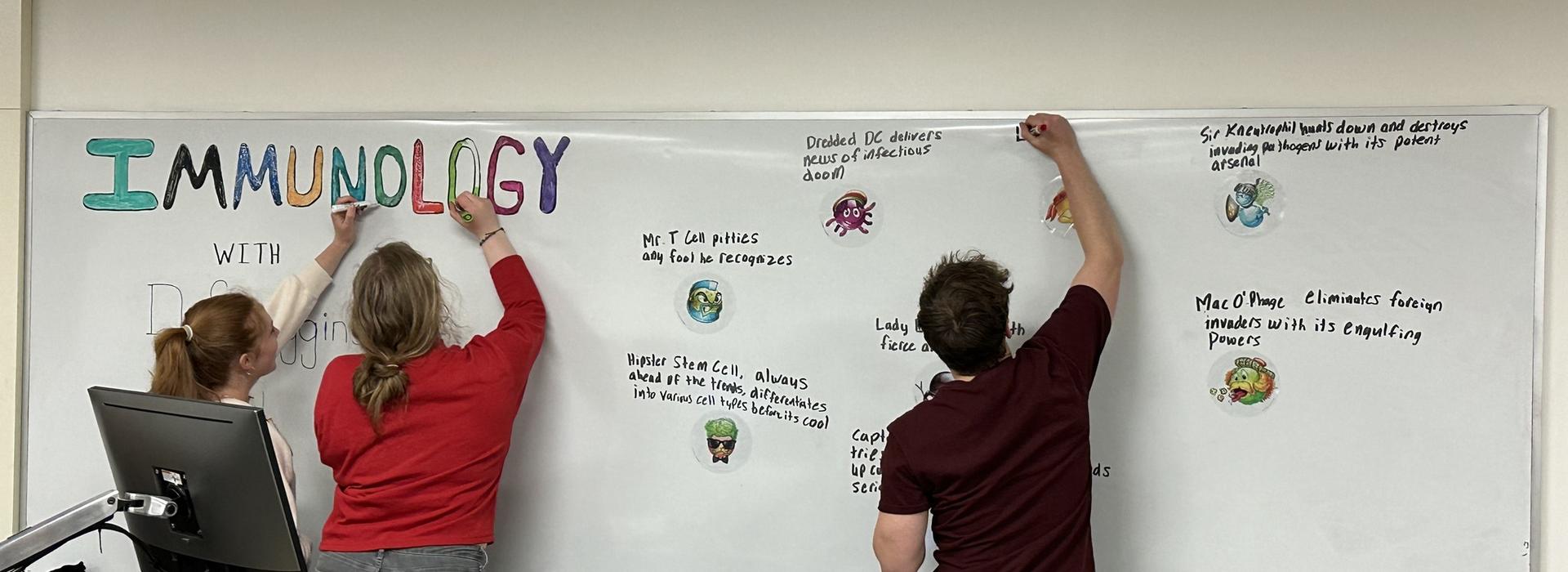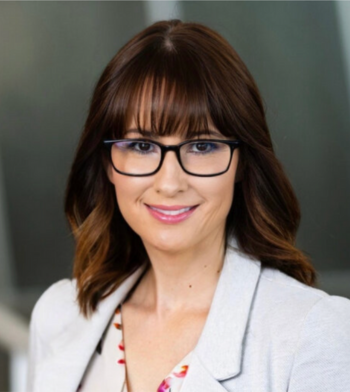
Duluth’s Scroggins Lab Publishes Cell Immunotherapy Treatment Research with Potential to Transform Maternal Hypertension Treatment
Duluth’s Scroggins Lab Publishes Cell Immunotherapy Treatment Research with Potential to Transform Maternal Hypertension Treatment
Dr. Sabrina Scroggins and Doug Scroggins’ mutual passion for maternal health and scientific research drives their work in the Scroggins Lab.
Sitting at the intersection of scientific inquiry and the complexity of the human immune system, the work of an immunology lab is inherently unique. Both micro and macro in nature, immunology deals at the molecular level to impact the entire body and, in some cases, entire populations. Immunology research uncovers essential knowledge about a wide range of issues.
At the University of Minnesota Medical School Duluth campus’s Scroggins Lab, researchers seek to understand the underlying mechanisms contributing to maternal diseases. Like all immunology labs, its research is unique, but what truly makes this lab special is a married couple with a shared passion for science at the heart of the work - assistant professor Dr. Sabrina Scroggins and research assistant Doug Scroggins. The couple, who have worked together on and off for 14 years, recently published two studies on their cell immunotherapy treatment research along with their colleagues at the Scroggins Lab.
Published in the International Journal of Molecular Science and Cells, their research highlights a treatment concept called hematopoietic stem cell transplant, which utilizes powerful stem cells from a patient’s body to treat various disorders. By using these stem cells from an individual’s body, the patient may be able to avoid adverse side effects like graft versus host disease, a condition occurring after transplants in which the transplanted cells don’t recognize the recipient's body and subsequently attack it.

“We take these cells from the individual who needs a transplant, turn them into cells that regulate immune responses, and then give them back,” Dr. Sabrina Scroggins explains. “So now, instead of the transplanted cells attacking you, these cells interact and interject to prevent that from happening.”
The Scroggins’ Lab research published in Cells applies hematopoietic stem cell transplantation to maternal hypertension, known as preeclampsia. Using animal models, the study showed promise in using regulatory dendritic cells to prevent or treat preeclampsia.
Despite their impressive work together, Dr. Sabrina Scroggins and Doug Scroggins never predicted they would end up here when they first met.
“I was told in high school that I would never go to college,” recalls Doug Scroggins. “I had a horrible case of attention-deficit disorder, so if it was a class I was passionate about, I knew everything about it. But if it was one that didn’t pique my interest, I didn’t do well. So college was not in my plan.”
At the beginning of their relationship, Dr. Sabrina Scroggins worked as a civil engineer, and Doug Scroggins was an EMT. But when Dr. Sabrina Scroggins realized her passion for science and research, Doug Scroggins found his, too.

“She started school, and she would come home and tell me stuff. I thought, ‘Oh, I really love this. I get it when you tell me. You make it make sense,’” he remembers.
Inspired to learn more, Doug Scroggins completed a bachelor's degree in Interdepartmental Health Studies, while Dr. Sabrina Scroggins went on to receive a PhD in Immunology. Doug Scroggins worked in Dr. Sabrina Scroggins’ lab during her doctoral studies, and the rest is history.
“Working together can be challenging, and it can be fun. At the end of the day, our passion for the science is a shared common ground,” Doug Scroggins emphasizes.
Dr. Sabrina Scroggins agrees, “Our marriage has grown through working in the lab together. Our four kids grew up in the lab. It’s just what we’re used to.”
Looking to the future, the Scroggins Lab hopes to deepen the understanding of the mechanisms of cell therapies and eventually develop drug-based treatments.
“The immune system is an enigma that we want to know more about,” says Dr. Sabrina Scroggins. “We hope to be able to make a large difference in moms' and babies' lives,”